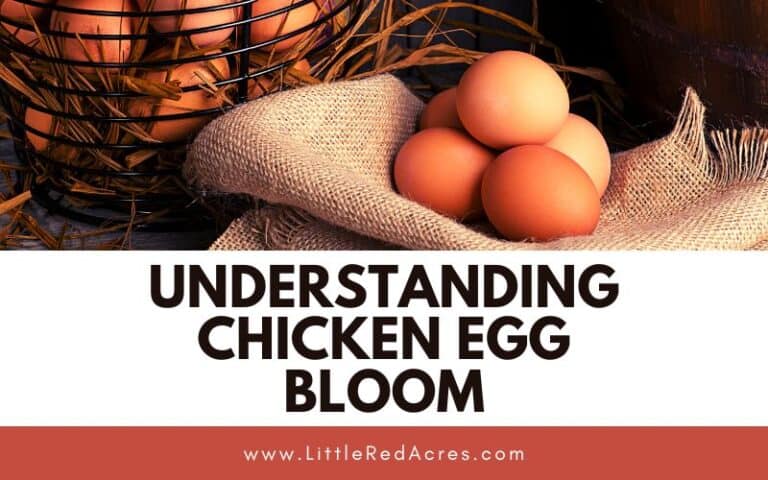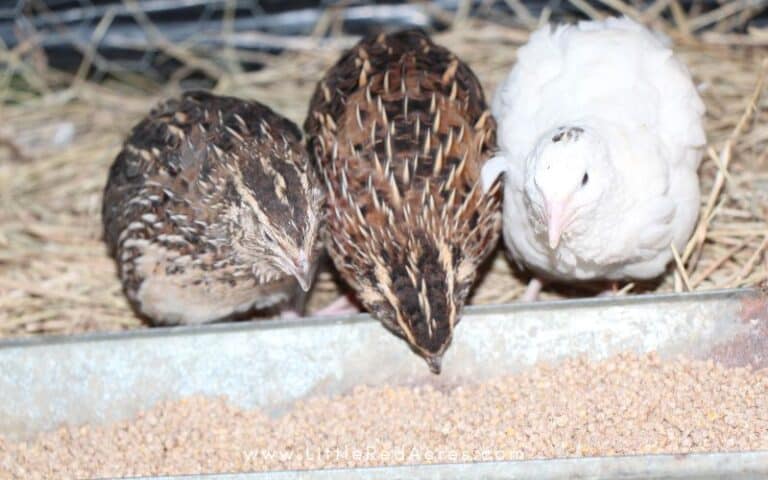The First 6 Weeks of Raising Chicks – Guide For Beginners
Inside: How to be prepared for raising chicks, the first 6 weeks of raising chicks can be easy with the right tools and knowledge.
Chickens are the easiest farm animals, so it’s a great place to start when transitioning into homesteading or a more self-sufficient lifestyle. Plus, who doesn’t love fresh eggs? You need to be prepared for raising chicks, the first 6 weeks of raising chicks can be easy with the right tools and knowledge.
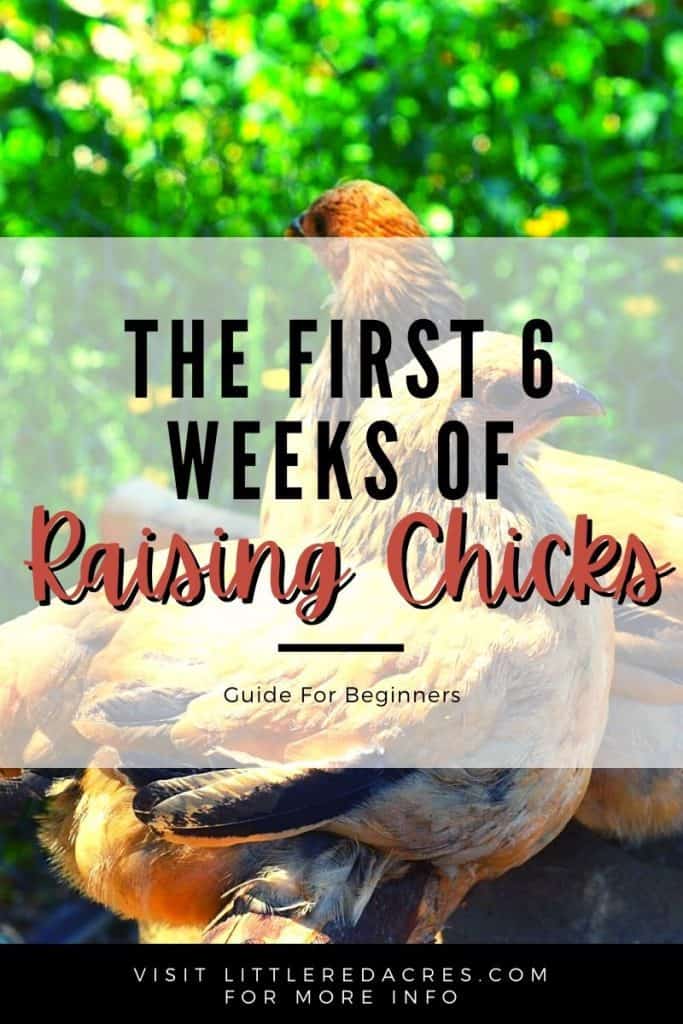
This post may contain affiliate links, see my disclosure policy for more information.
The First 6 Weeks of Raising Chicks – Guide For Beginners
Brooding chickens is not hard.
It is messy.
It's not overly pleasant, the mess and the cleaning that is.
But the chicks, are so adorable. They grow fast too, and in no time at all, they'll be moving out to the coop.
What you need for raising chicks for the first six weeks:
- a brooder
- heat lamp or heating plate
- thermometer
- waterer
- feeder
- chick feed – we use medicated
- bedding – we use pine shavings
- vitamins and electrolytes – optional
Get updates & freebies delivered to your inbox!
Setting Up A Brooder
Bedding and Feeding
It is very important to use bedding that will prevent your chicks from slipping and getting slayed legs. We use a couple of inches of pine shavings. They'll quickly start scratching away like adult chickens too.
I prefer to hang my chick feed and waterer, just barely off the ground, off the shavings. It helps to keep food waste and wet shavings down when they make a mess. Because that is what chicks do. We raise them as the chicks grow.
Keep reading to learn more about raising chicks for the first 6 weeks. At the bottom of the page grab your FREE copy of our more in-depth PDF of raising chicks week by week.
Some like to use vitamins and electrolytes in their chick water when they are in the brooder. I do not often do this. I will if the chicks have trouble hatching but it is very rare.
But it is important to use warm, room-temperature, water. You don't want to shock warm little bodies with cold water.
Make sure they always have access to food and water.
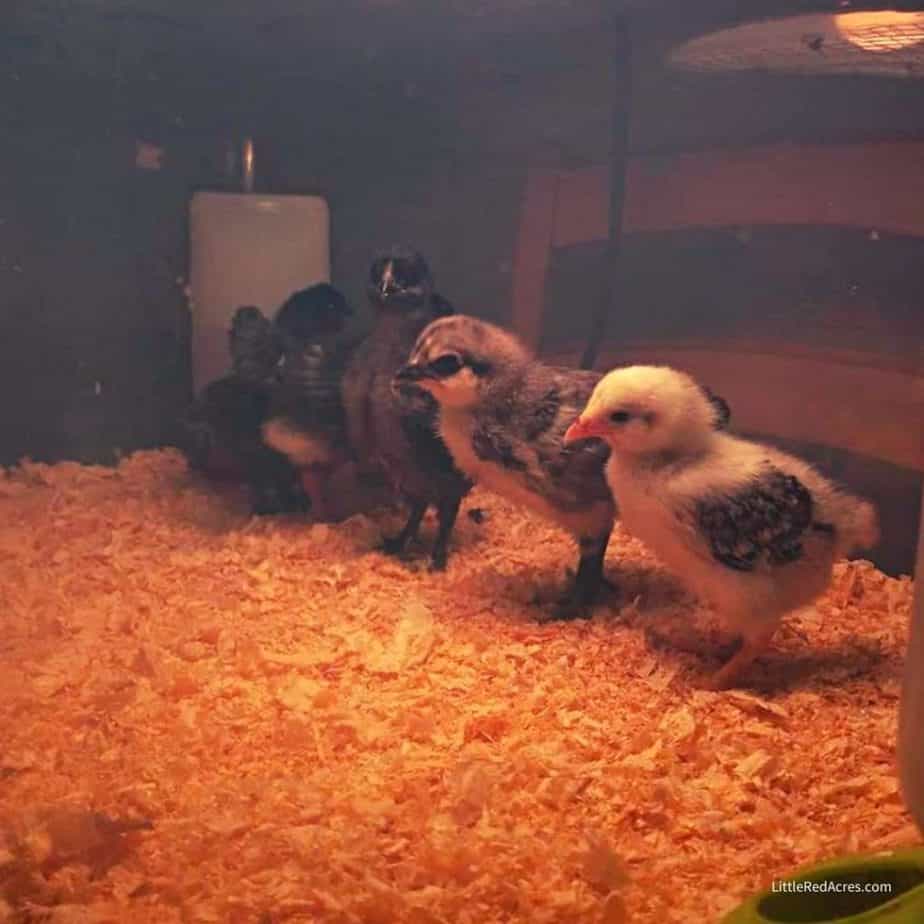
Keeping Your Chicks Warm
Pick your heating source. A heat lamp or a heating plate. Heating plates I have been told by friends can be hard to clean and get gross but you have more control over the temperature as the heat is in one place.
A thermometer to watch the temperature of your brooder. Watch where the temperature piece is, sometimes chicks like to lay on it and make you panic that the temperature of your brooder is way too hot.
The best advice I got when I started with chicks was that it is not as stressful and difficult as it sounds. Chicks are easy to read.
If they’re huddled up together under the lamp, they’re too cold. If they’re trying to stay as far away from the heat as they can, they’re too warm.
You’ll be able to tell when your chicks are completely content because they’ll be active and spread out.
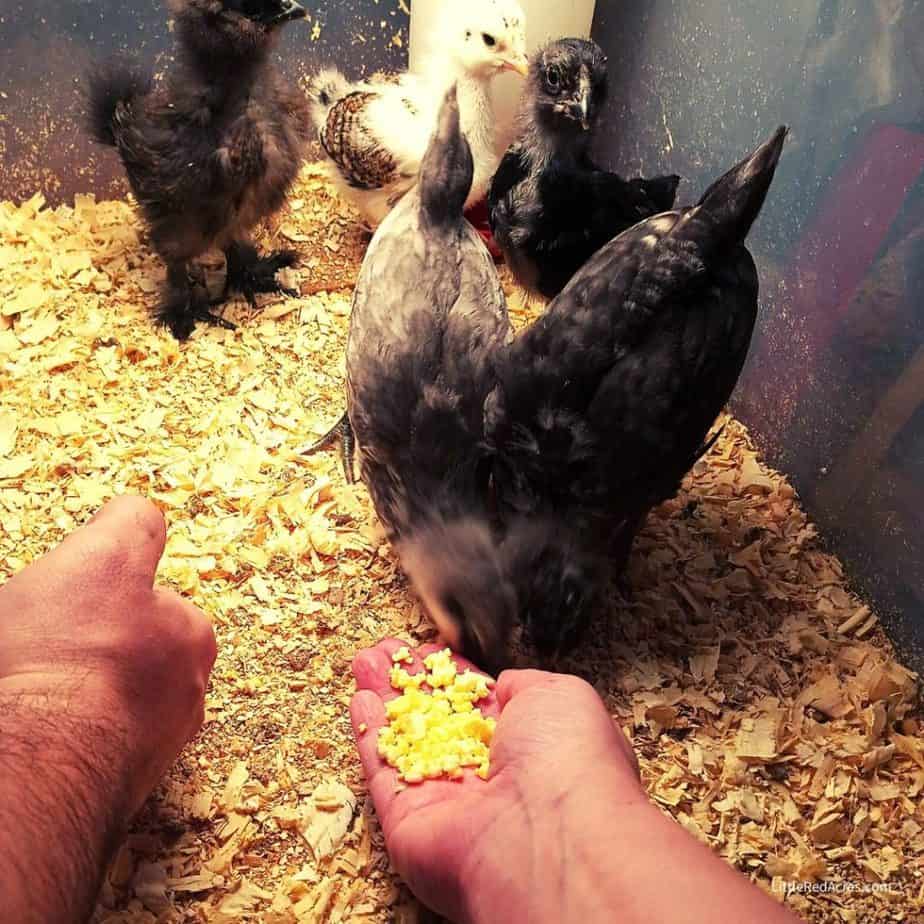
Handling Your Chicks
Don't be afraid to handle and cuddle with your chicks. You want them to be used to you, to come to you when you need them to once they are outside. This way if something happens and one gets hurt you can catch it to provide care.
My kids do daily cuddles with every chick we hatch whether we are keeping them for ourselves or selling them. We have cuddly Standard Braham chickens and Coturnix quail that run to me and hop in my hands.
Raising Chicks Week By Week
Raising chicks week by week involves providing appropriate care and attention to baby chickens during their crucial early weeks of life. Here's a quick overview:
Week 1: Brooding
Week 2: Temperature Adjustment
Week 3: Introduction to Solid Food
Week 4: Feather Development
Week 5: Outdoor Exposure
Week 6: Transition to Grower Feed
Remember to monitor the chicks' health, adjust their environment accordingly, and provide a balanced diet throughout the six weeks. Each week brings new developments, so paying attention to their behavior and needs is crucial for successful chick rearing.
Frequently Asked Questions
How many chicks should be kept together? Chickens are sociable creatures, so plan to keep at least two chicks together while brooding.
Is it OK to keep baby chicks in the house? Chicks are very sensitive to draughts and become sick easily if they aren't protected, even when the weather is warm. Brooders are best placed indoors for this reason.
How often should you handle baby chicks? Hands-on time with your chicks should be limited to several short sessions of just a few minutes each, several times a day.

Want More?
Choosing the Right Egg Incubator
Getting Started with Incubating Eggs
How to Tell if Eggs are Fertilized


